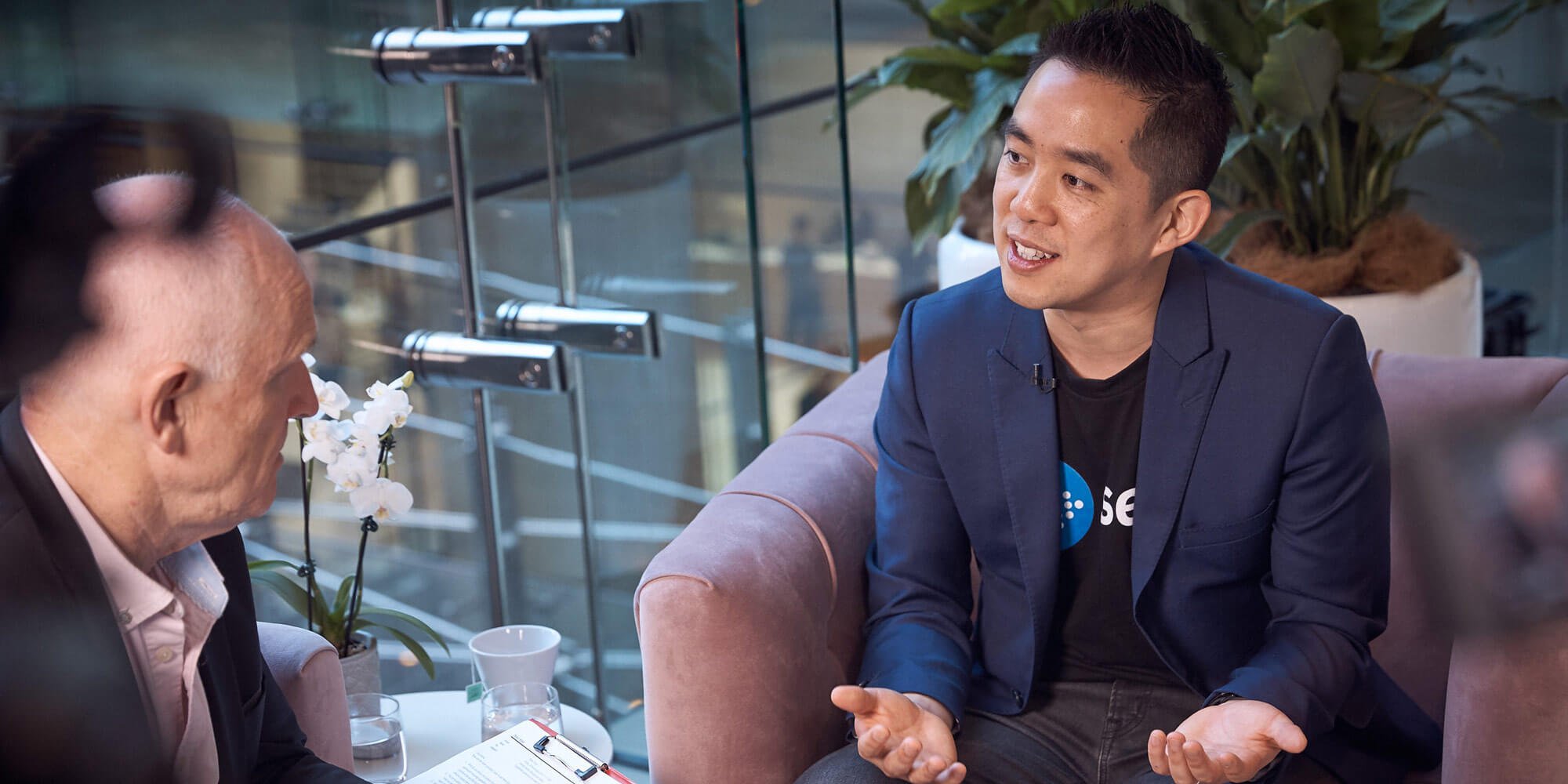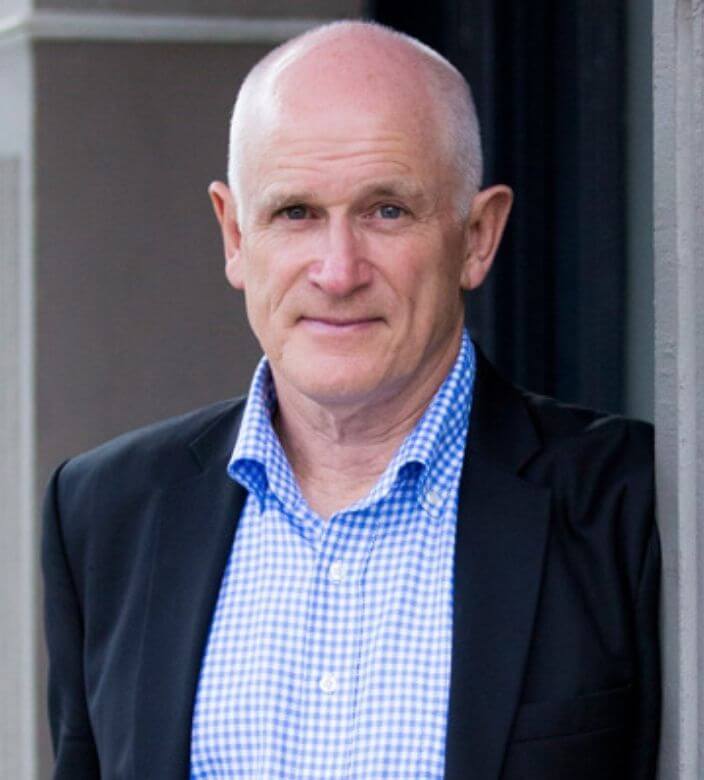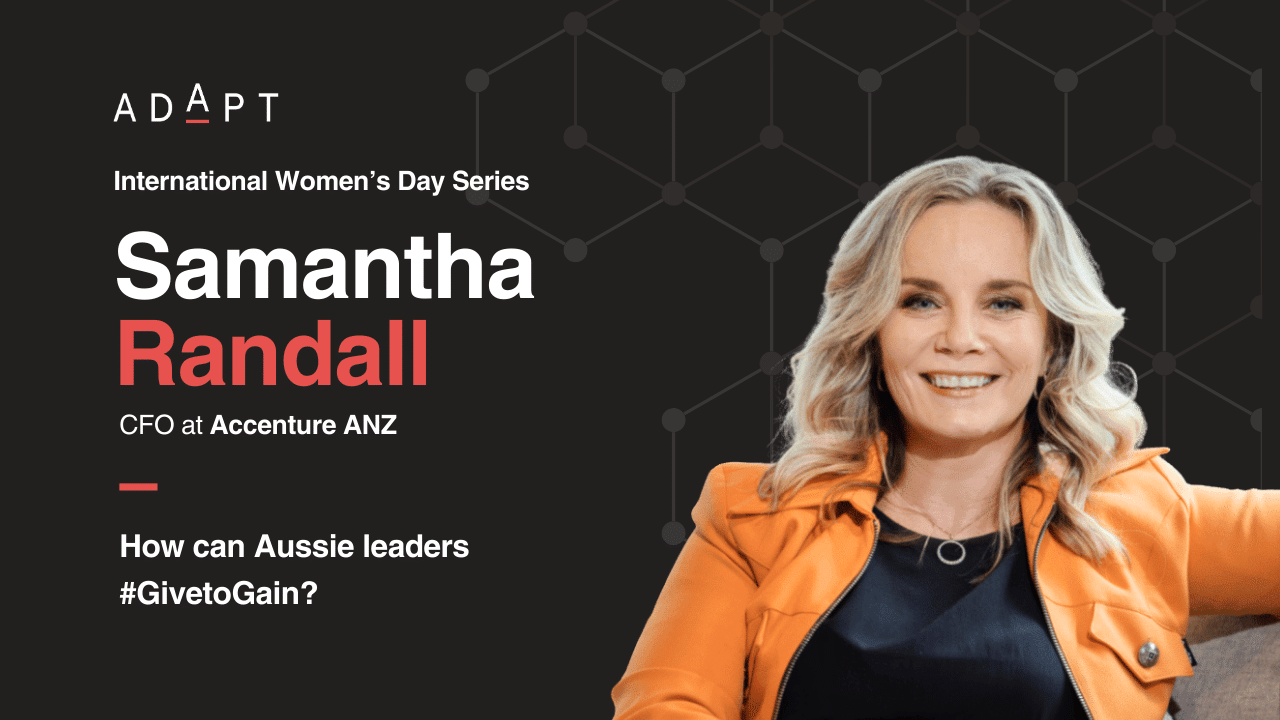At SEEK, Peter Lim heads up the Finance Excellence area for the group and drives the optimal use of tools and technology for better insights.
Speaking at ADAPT’s CFO Edge event with Senior Analyst Peter Hind, Peter gives his honest thoughts about balancing the CFO role of both financial guardian and bold strategist. He discusses effectively resourcing the organisation and skillsets to look for when building your finance team.
Peter Hind:
Peter, we’re in an interesting time. You are someone who’s a strong advocate for the need for the CFO to be very much strategically involved in their organisation.
And they were helping it evolve. Yet we’re living in a corporate world in Australia, which is post the Hayne Royal Commission, where the outcomes of poor behaviour in an organisation, where people pursue strategic targets but don’t think about the mechanisms.
You expose bad practices, and I’m interested to hear how you balance the need for the CFO to be the steward of a business, the gatekeeper of behaviours in the business, and the financial guardian of the business with the need. Also, to be bold and strategic.
Peter Lim:
That’s a great question. I think it goes hand in hand in my view, right. So CFOs need to be diligent around where their spending goes. They need to ensure that the business case stacks up and that; that value will be there to be delivered. At the same time then, therefore, what CFOs can do is then they can prioritise what those transformation programme initiatives are going to be.
The actual struggle is around getting the right capability in-built into their finance organisations to drive those programmes because it’s not about whether you have the right idea. Still, it’s about whether you can deliver that idea in the right way?
The CFO needs to invest more time into getting the right capabilities and accountability to deliver things for the organisation.
Peter Hind:
What I’m interested in, Peter, because what I’m hearing you say is, “Stop thinking you’re the solver of every problem. Build a team where you can delegate responsibility for some of these, and then focus on more of the strategic things in the organisation.”
Peter Lim:
That’s correct, right, so it goes delegation to one level. So you need to be able to build a team that you can trust, to be able to run the organisation as if it were their own, and therefore then make the changes that are required to make it more efficient, or make it more effective in what it does.
What I find, typically, in organisations is they usually try and delegate that to an external. External has no incentives, other than dollars, to better deliver any outcomes, but all they’re there to do is provide better a message for you, which are some of the reasons why they usually flop.
That’s why it’s coming back to that is CFOs, their role, other than making sure that we’re spending the money in the right way, is to get the correct internal capability to help drive the outcomes you’re looking for.

Peter Hind:
Well, and that’s interesting, because what I’m hearing you also say is, it’s not just about doing things as cheaply as possible. It’s about doing them effectively and making sure you’re resourced to be able to do that.
Peter Lim:
Yes, correct, because it’s definitely not, I mean, in my view, it’s actually not about dollars per se. You need to be financially diligent, but it’s all around doing.
You have the right people to be able to know what they want it to do, have the right decision-making power to know what they want it to do, and then help influence the right people across the organisation to better deliver what they want to do.”
If you don’t have that, you can have the best business cases in the world, you can have the most money in the world, and all you’ll be doing is just throwing that down the drain.
Peter Hind:
Okay, so when you go hiring to join your team, your finance team, what skill sets are you looking for in people? Obviously, people are going to have financial capabilities, accounting qualifications, but I’m assuming you’re looking for a bit more. And how do you go assessing whether people have those attributes?
Peter Lim:
I could give you a whole list of different capabilities. But I think I really want to simplify this, right, and a simple fact of what I go looking for: when I go looking in a finance team, is that the finance people have a curiosity around changing the way that they want to work, and they have a curiosity in using technology to be able to enable that to happen.
If they have that curiosity, and when you get someone coming into an interview saying, “Oh look, I just need to work in Excel.” “I need to be able to just do things in a way that I can just automate what I do.” That shows me that they don’t have that curiosity to figure out is there a better way of doing things.
So, look for the curiosity within your finance team.”
Look for the curiosity when you hire, and I think that’s really going to set you up to get the right type of mindset to better deliver effective outcomes within finance.
Peter Hind:
Is that age-related? Are older people less curious than younger people?
Peter Lim:
I think it’s definitely not about age. I think older people may not have as much exposure, you could say, so what the art-of-the-possible is, but it doesn’t mean that they can’t be curious about what the art-of-the-possible is. So, getting people to immerse themselves around being uncomfortable, and figuring out what are other organisations doing, or where is technology taking us today doesn’t have an age barrier to it.
It just needs that confidence or that composure to be able to give it a shot, and once they do have that, and I can tell you, within seeking our finance team, there are older people who are very curious about technology, and, as long as they can embrace that, that’s all we’re really going to set you up for the ride.
Peter Hind:
I’m going to ask that question from another angle. Because you’re a strong advocate of technology’s potential to enhance the finance function.
And yet, when I talk to people at this conference, one of the things they say is, often the finance people are the last place they’d look to embrace technology.
They’re looking for technology implementations in other parts of the business, the supply chain, the sales forecasting, but actually, in the finance area, there can be some lack of appreciation of where technology can play a part. You strongly believe technology has a place, and part to play, in transforming technologies.
That’s a change management task, and I wanted to ask how you get people to see where they complement technology and leverage it effectively.

Peter Lim:
It’s an on-running thing. Well, you’re exactly right.
Finance is usually the last people to adopt any technology, and they go, “Give me Excel.”
That’s all they’re wanting to do, but it comes back to take yourself outside of work, and this is why I really enjoy working at SEEK. There’s a great balance between living life as well as working at SEEK, and if you think about all of the luxuries, all of the technologies that you’re using outside of work.
All we do is we just encourage that thinking in work, and by doing that, you’re inciting inspiration, you’re inciting challenges from the finance organisation to go, “If I can do this on my phone, and I have a report on my phone on the way that I run, why can’t I do the same thing in my finance role that I’m doing?”
By doing that, that is to go what that does is create demand and goes finance will then start to push the boundaries to go, “Why am I still working in pulling out information manually, when I know that, outside in the world, I can get this automatically?”
So, that’s how we get people to start to relate, and we get people to start to drive change from within themselves is to bring their home life into their work-life, and then have that drive demand.
Peter Hind:
And what I heard there, also, is a lot of the mundane tasks that you have to do in accounting, like maybe bring data together and all that stuff, if you can automate that and streamline that you can actually focus on the things in accounting you probably enjoy most of all.
Peter Lim:
Exactly right, and I think that the whole role of finance is changing over time. We’re becoming very much a strategic business partner, and those operator, steward, or control type roles are becoming less and less, due to automation.
So, therefore, then, it’s to go, “Well how do we excite the finance organisation around “what art-of-the-possible is with data so that you can become that strategic partner for the business.”
And it thinks that’s the part that we really tack onto when we’re driving innovation is to go, “You don’t have to worry about what you’re doing today. Don’t imagine your life is “what you’re doing today,” but see how much value you can actually provide by all of the information that you’ve already got access to, but in a much more efficient way.
Peter Hind:
That’s an empowering thought that you have there.
 Watch
07:51
Watch
07:51






























